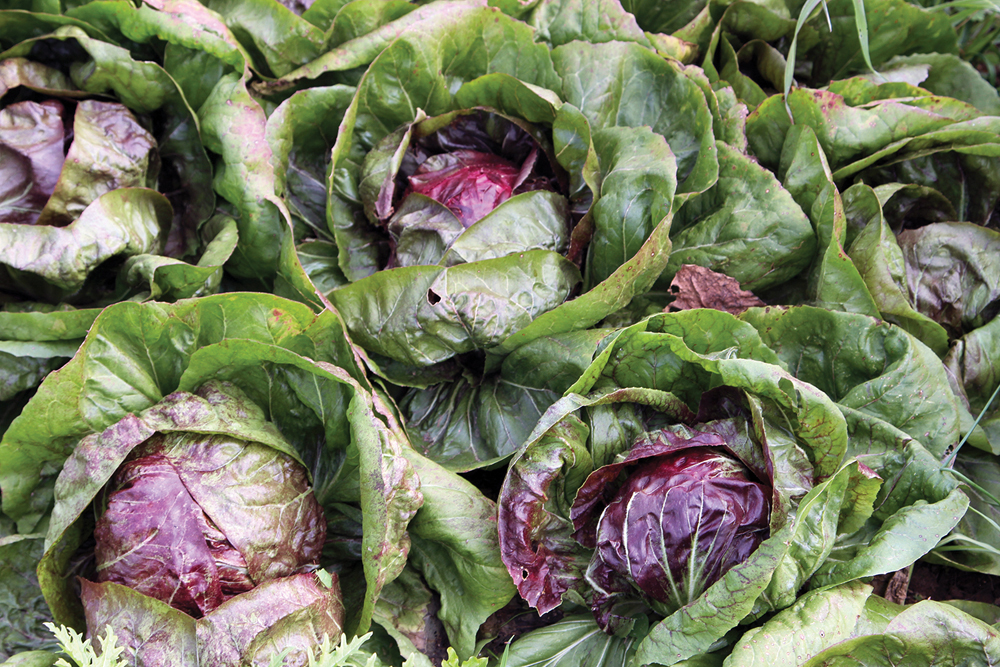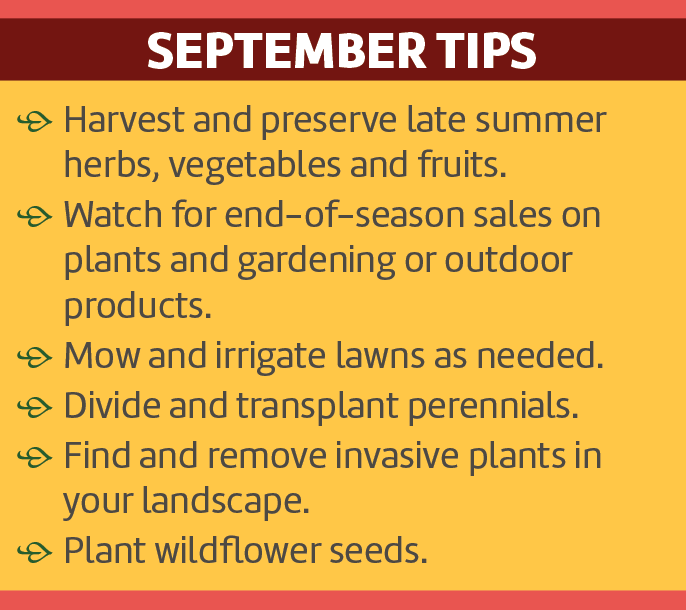By Katie Jackson

September may signal the end of summer gardens, but it’s just the beginning of what quite possibly is the best gardening season of all.
Fall, which officially arrives on Sept. 22 (the autumnal equinox), is an ideal time for planting, and for working, in the garden, and this year a lot more of us will be out there doing both. According to Amy Enfield, a horticulturist with Bonnie Plants, the COVID-19 pandemic sparked an unprecedented increase in gardening nationwide. In fact, a survey conducted by Scotts Miracle-Gro showed that, from March to July, some 21 million Americans took up gardening, most for the first time ever, and apparently they liked it.
“Nearly everyone surveyed said they intend to keep on gardening and grow more next year than they did this year,” Enfield says. Lucky for all of us, next year can start now. Cooler fall temperatures and often more abundant rainfall provide perfect growing conditions for cool-season vegetables, flowers and herbs. Those conditions also help bulbs, lawn seed and trees, shrubs and other perennials develop stronger, deeper root systems, which gives them a jump start on next year’s growing season.
Enfield herself loves fall gardening, especially for growing cool-season vegetable crops such as leafy greens (lettuce, spinach and collards), root vegetables (beets and carrots) and cole crops (broccoli, cauliflower, cabbage and kale). Though these crops are often planted in the spring, Enfield said many will do better for us in the fall.
“In the Southeast, spring tends to be short and it gets really hot, really fast,” she says. “When temperatures jump from the 70s to the 90s overnight, that’s tough on early spring crops.” And, as temperatures rise, many cool-season plants bolt (produce flowering stems) too early and develop bitter flavors.
“The benefit of fall is that your soil is already warm, but temperatures are cooling off,” Enfield explains. “Cool-season crops love that.” They often also respond well to cold. “When plants like kale, collards, carrots and sugar snap peas are kissed by a light frost, that enhances their sugars and they become sweeter and more flavorful.”
In addition to cool-season vegetables, Enfield said fall is a great time to grow many herbs, especially cilantro, parsley and mint. And some warm-season vegetables, such as green beans and tomatoes, can be grown well into the fall here in Alabama.
The key to a successful fall vegetable garden is preparation and attention to planting dates. Since severe cold is usually the greatest limiting factor for many fall vegetables, it’s important to pick varieties that either tolerate colder temperatures or can be harvested before the first hard freeze.
“Look for varieties with a harvest maturity of 100 days or less,” Enfield says, or find out the dates to maturity of things you want to grow and count back from your area’s first expected frost date to determine if there’s enough time to grow them successfully.
Cutting that date close? Frost blankets or other protective covers can be used during severe cold spells to extend the life of many fall crops well into the late fall or early winter. Planting in containers that can be moved to protected areas during extremely cold weather is another option.
Regardless of what you’re planting, follow proper planting practices. Remove spent or dead plants, which may harbor disease and insect pests, and test your soil before adding fertilizers. Enfield recommends turning garden soil and amending it with compost or other organic matter, too. “Whether you’re planting perennials, trees, vegetables or anything, your plants will be a lot happier for it,” she said.
There’s much more to plant and accomplished in the fall garden, so check out the websites of Bonnie Plants (bonnieplants.com) or the Alabama Cooperative Extension System (aces.edu) for ideas, or consult with local garden experts.

Katie Jackson is a freelance writer and editor based in Opelika, Alabama. Contact her at [email protected].




